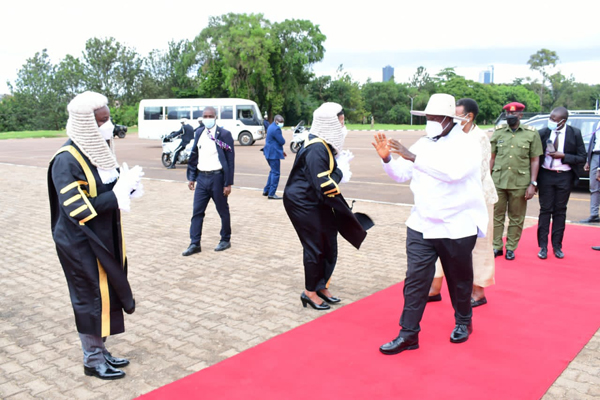Prime
Invest in social protection of the vulnerable

Author, Michal Rutkowski. PHOTO/FILE/COURTESY
What you need to know:
- The way forward is to prioritize the poorest and most vulnerable with adequate support.
Today the world is experiencing unprecedented times as we grapple with the impact of Covid-19, climate change, and the recent high fuel and food prices. Prior to the pandemic, the world had made progress in reducing poverty, but vulnerability and informality remains stubbornly high.
In the decade (2007-2017), the proportion of people in poverty across the world fell from 39.5 percent to 24.3 percent. Although poverty has fallen, there is a rapidly growing “vulnerable” class consisting of those who are not poor but have not achieved the comforts afforded by the middle class.
In many countries, the poor and vulnerable in the informal economy continue to face critical risks but don’t have the necessary support like social insurance to buffer against shocks.
Access to social assistance or to economic inclusion and labour programmes remains limited. The impact of Covid has seen an increase in poverty and worsening living standards of the poor around the globe.
While poverty in Uganda has declined in the past decade, it remains at 20.3 percent as per the Uganda National Household Survey —UNHS (2019/20). Of the poor, 3.5 million (41.8 percent) are considered to be food poor.
The UNHS also highlights inequality trends with the richest 10 percent having consumption expenditure that is twice the consumption expenditure of the bottom 40 percent.
Similar to global trends, many households in Uganda remain vulnerable to shocks and at risk of falling back into poverty.
These households are susceptible to income fluctuations, food insecurity, and often do not have the means to cope with shocks that they may experience such as droughts, irregular rains, floods, serious illnesses, or accidents to the main income earner in the household.
These shocks exacerbate the longstanding challenges for inclusive growth. Uganda has one of the youngest populations in the world—with 46 percent of the population aged 14 or less.
A country’s people are one of its greatest assets with timely human capital development. Yet the World Bank’s Human Capital Index scores Uganda at a low 38 percent. This means a child born in Uganda today is likely to be just one third as productive as an adult, compared with what she/he could be, with complete education and full health.
Uganda’s poor and vulnerable households need support against shocks to protect their human capital development investments — by not pulling their children out of school or delay seeking health services. Social protection interventions help individuals and societies to manage these risks and provide a stepping stone to access economic opportunity. Social protection aims to achieve these by increasing i) resilience – insuring against impact of different shocks; ii) equity – protecting against poverty; and iii) opportunity – promoting human capital and access to productive work. Social protection programs are delivered through different kinds of interventions such as social insurance, social assistance, labour and economic inclusion policies and programs that directly benefit poor and vulnerable households.
Evidence globally shows that social protection directly boosts income, increases resilience and reduces current and future poverty. In addition, social protection programs help build human capital by promoting better nutrition, better access to health and education, productivity, and protecting individuals across the life cycle. Social protection interventions are aligned with Uganda’s Third National Development Plan that aims for transformation focused on human capital development and specifically emphasizes increase in the average household’s income and improved quality of life for Ugandans.
Covid and the worsening impact of climate-related disasters can jeopardize this transformation process. Hence, the need for a shock-responsive or adaptive social protection system in Uganda. Such a system would entail establishing a national social registry of vulnerable households; strengthening and expanding digital payment systems that allow efficient and transparent distribution of support to the impacted households; and development of a disaster risk financing strategy that strengthens the financial resilience of the country to disasters and allows timely response.
The way forward is to prioritize the poorest and most vulnerable with adequate support and address the specific needs of women and girls, and other excluded groups. The World Bank remains committed to working with the government to support the poor and vulnerable households to increase their resilience and opportunity and generally to enhance equity.
The writer is World Bank’s global director for social protection and jobs




